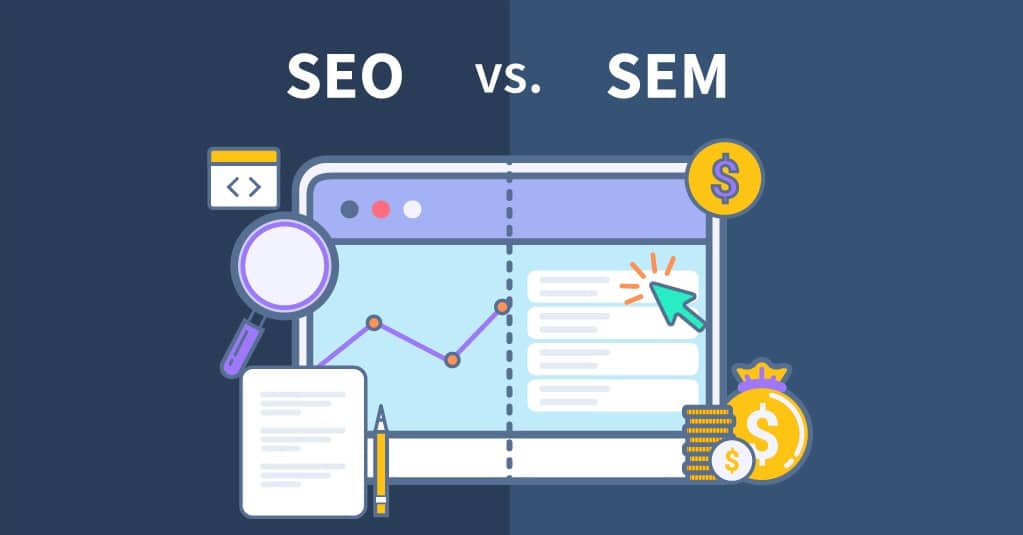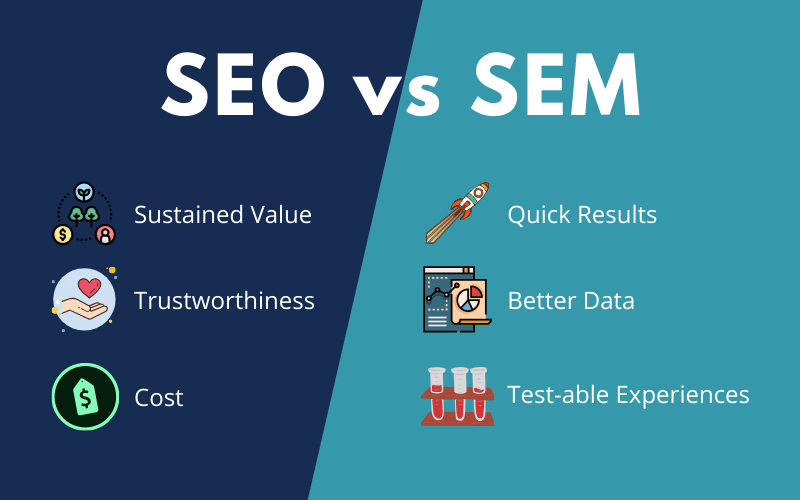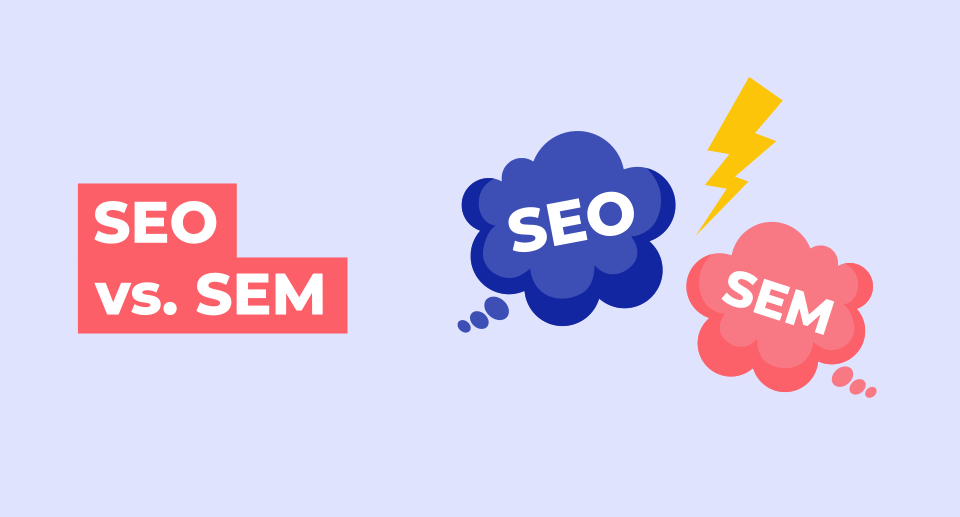
SEO vs SEM: What to Choose for your Business?
SEO vs. SEM
If you’re looking for ways to boost sales or increase brand awareness for a business, you’ve come to the right place.
You may have heard the terms SEO and SEM casually thrown around when discussing digital marketing strategies. But what do they actually mean?
SEO and SEM are both forms of search marketing that businesses can use to reach their target audiences. Such as Google or Bing. They are in fact very different.
What about the cost of SEO vs SEM? How do they differ and are they similar in any way?
SEM and SEO both fall under the umbrella of Search Marketing.
This means they both use search engines to drive traffic to your website. The key difference being that one drives organic traffic, the other uses paid search.
What is SEO?
Search engine optimization (SEO) is a method to optimize a website to receive organic/natural traffic or visitors from the search engine result pages.
Although organic search traffic isn’t paid, the process of search engine optimization may incur costs.
Depending on the competitiveness of the market you’re targeting.
The aim of SEO is to attract relevant visitors to your website that are interested in your products or services.
However, optimizing to receive targeted organic traffic is only one part of the equation.
The other part is getting this traffic in higher quantity by targeted multiple, relevant keywords.
What is SEM?
Search engine marketing (SEM) is a way to funnel in relevant traffic from the search engines by buying paid or sponsored ad listings.
So if you’re wondering “is SEM the same as paid search or PPC?” then the answer is yes.
SEM often refers to pay-per-click (PPC) advertising and marketing.
And while there are many PPC platforms in the search and social arena, by far the most popular and successful option is Google Ads (formerly known as Google Adwords).
The aim of SEM is to help advertisers gain visibility in the search engines and drive the right kind of traffic without having to wait for it.
In order to be successful with SEM, it’s important to have a strong, dynamic SEM strategy to get the best return on investment.
Why Is SEO and SEM Important?
Both SEO and SEM are powerful processes that can help businesses see substantial growth.
By correctly utilizing search engine space, you’re able to tap into a large audience that’s already there.
Specific keyword research, website management, and targeted advertising alike all contribute to the effectiveness of search engine campaigns.
And implementing any one of these will help you see rises in search engine results page (SERP) rankings, brand awareness, and quality leads.
Now all you have to do is decide which process is the better fit for your business, and get the ball rolling.
SEO Vs SEM: Which Should You Choose?
Your business, regardless of its size, has a unique audience.
You may be able to reach out to them with SEO or SEM, but the results depend on your business and marketing goals.
For some businesses, SEO makes complete sense while PPC is out of the question.
And for some SEO may not seem viable when compared to the benefits of PPC.
If you are an accounting agency that needs to generate local business and is in no hurry to do so.
Building and executing a solid SEO strategy can work out great in the long run.
But if you’re a lawyer competing with other legal agencies in the competitive SEO space, you may be better off buying PPC ads to get better results.
It is essential to analyze your existing goals and how they correlate to your overall business objective.
You have to create an online marketing strategy that clearly guides you towards leveraging the right method.



